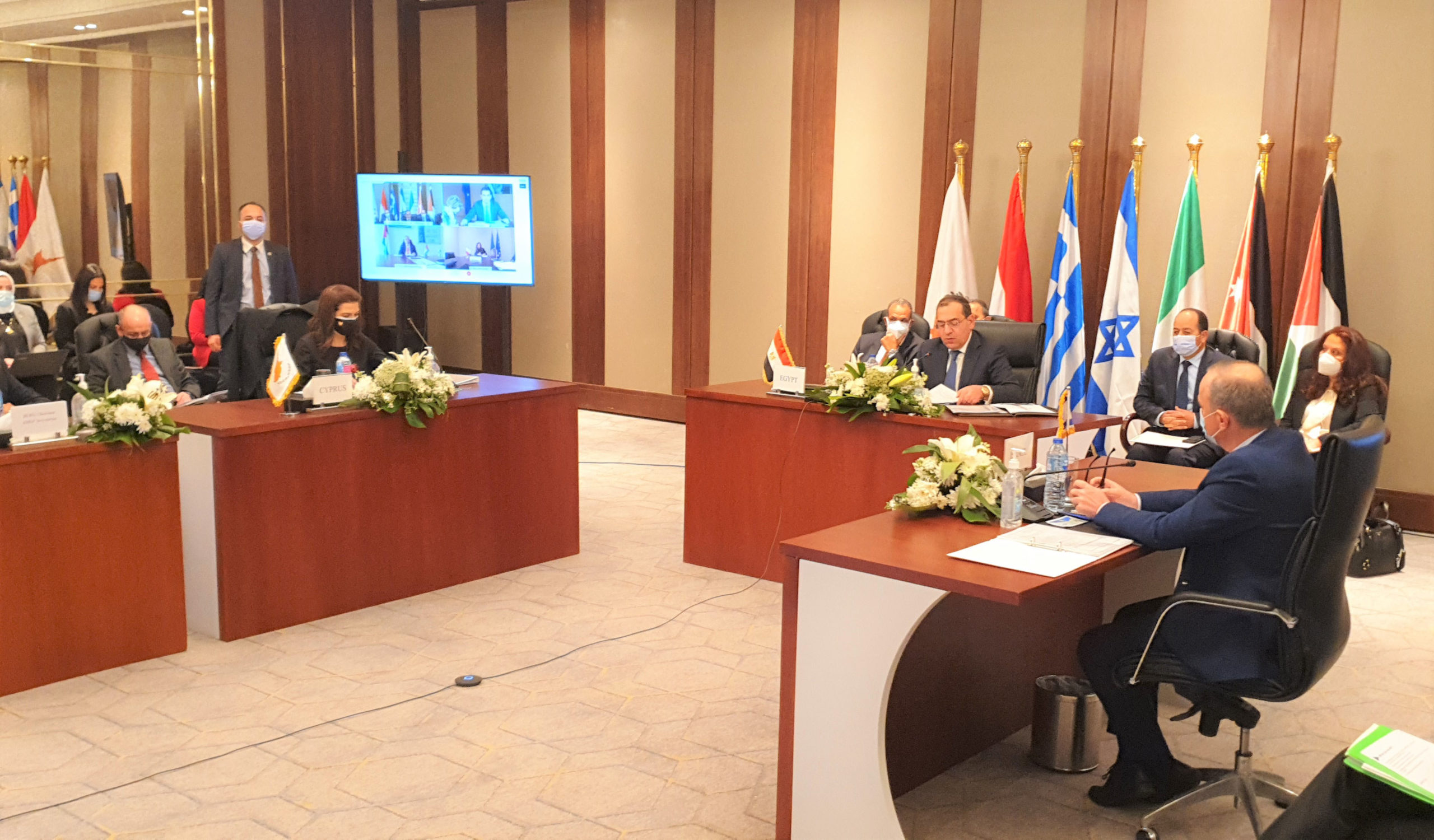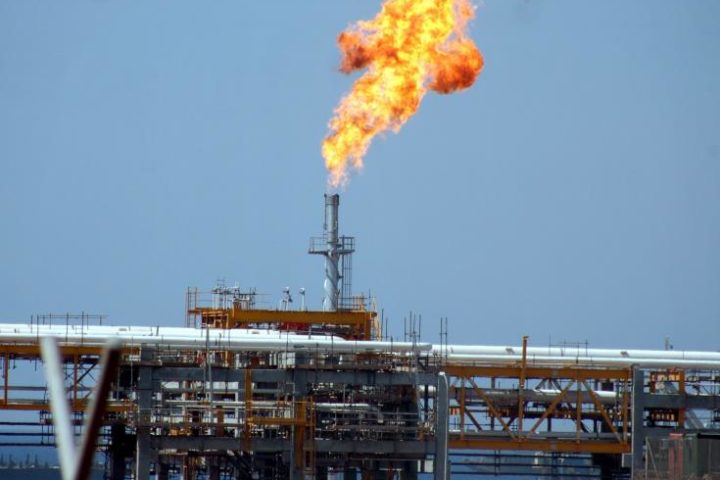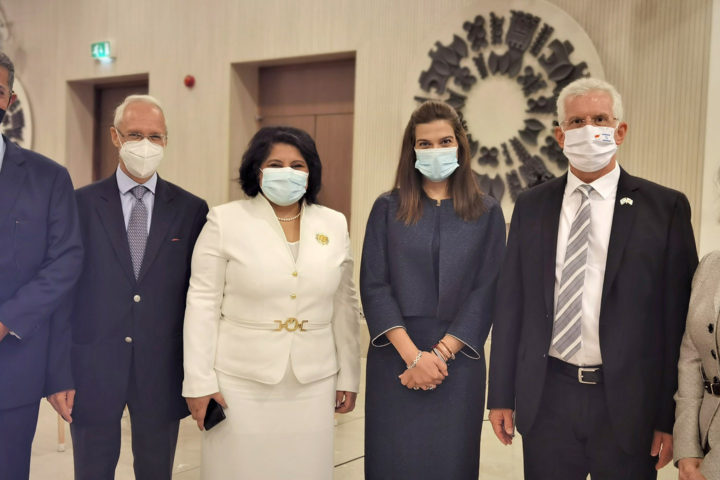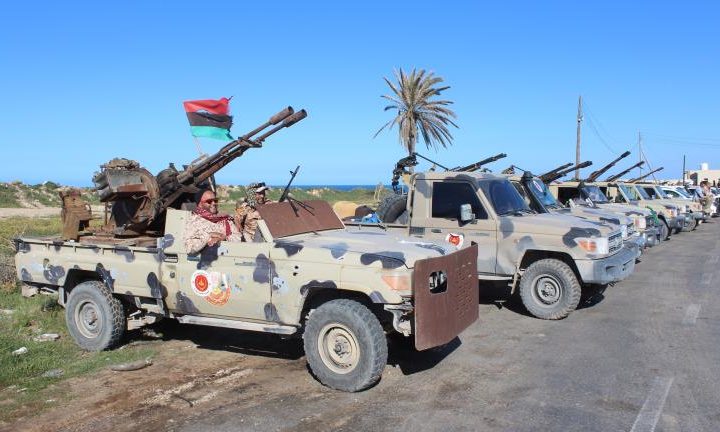The Eastern Mediterranean Gas Forum (EMGF), as an international body, has come into force with regional ministers meeting in Cairo, Egypt, approving the forum’s statute.
The meeting of energy ministers from Egypt, Palestine, Jordan, Greece, Cyprus, Italy, and Israel also announced that Cyprus will be the first president from January 2022.
The ministers also reiterated the forum targets to establish a regional gas market in the eastern Mediterranean while enhancing trade between the signatories.
The meeting also adopted the EMGF work program, entailing the organizational setup’s finalization, together with the gas cooperation activities, including studies, initiatives, and workshops.
The EMGF reiterated its long-term strategy while launching two new initiatives on gas decarbonization and liquified natural gas as a fuel for ships.
During the meeting, France was welcomed as a member, while the US as an observer.
The next meeting is going to be held in Q4 2021 in Cairo.
In a link to the current ongoing regional maritime disputes and potential conflict with Turkey, countries said they would maximize the use of gas resources in the eastern Mediterranean region with full respect to members’ rights to their natural resources under international law.
There are doubts about the future of the EMGF, geopolitics with regional maritime conflicts still unsolved.
Without being too negative, the EMGF approach misses a significant target to set up a regional security alliance to support offshore gas production and monetization and confront possible threats to maritime areas and ‘the freedom to sail” in disputed waters.
For most parties, the Turkish military and naval operations are still a threat, while investors are wary about Ankara’s future operations.
At the same time, regional media is too silent about a significant unreported incident during the meeting in Cairo.
Facts have emerged that the Palestinian Authority vetoed a UAE’s request to become an observer to the EMGF.
Sources said one reason is the current crisis between the UAE and the PA regarding the Abraham Agreement with Israel.
Palestinians see the peace agreement between the UAE and Israel as a betrayal of their cause.
Discussions are still ongoing, but it feels strange to have the expansion of the EMGF dependent on decisions made by a small entity without vast energy reserves.
However, other sources have made clear the PA has been in contact with Turkey on this issue.
Erdogan’s opposing views on the EMGF are now being pushed forward via a proxy, it seems.
Turkey pressure
The EMGF should address these issues before the whole organization falls victim to external Turkish pressure via proxy.
Unfortunately, outside forces could hold direct power over the influence of a supra-regional organization.
Measures need to be taken to address this before the baby is strangled before it can grow up.
To set up a functional energy organization, more emphasis needs to be put on integration and not exclude security, investments, or geopolitical cooperation.
Combining GCC energy and East Med energy sources and strategies can be a major power block, not only for international markets but also to increase diversification and monetization of reserves and supply.
The future of the East Med is linked to integration, not only energy.
By stepping up, however, the energy-based EMGF first steps are being taken.
Targeting LNG exports, small-scale LNG operations or even LNG bunkering in Greece and Egypt, major steps can be taken for success.
Integration and linking up to other regional groups, such as the EU or GCC, is a must, as investments will be needed and supra-regional support to counter political, military, and economic threats.
Flexibility in decision making is a powerful tool to block potential internal proxy interest, while expansion only makes success more viable.
Taking the BENELUX example as the East Med’s EMGF, integration of EMGF-Red Sea Alliance – GCC could be at least a geopolitical energy-based EU approach.
Don’t let external power players take any option to constrain future developments, whether they are Turkey, Russia, or China.
Don’t forget, in a reaction to the EMGF and Philia Forum discussions, Turkey’s ruling Justice and Development Party (AKP) spokesman Omer Celik accused Greece of forging regional alliances aimed against his country.
Celik warned Greece against relying on countries that have “taken it along to arm wrestle with Turkey.”
The East Med could be quickly heating up again very soon.
Cyril Widdershoven is Global Head of Strategy, Berry Commodities Fund










